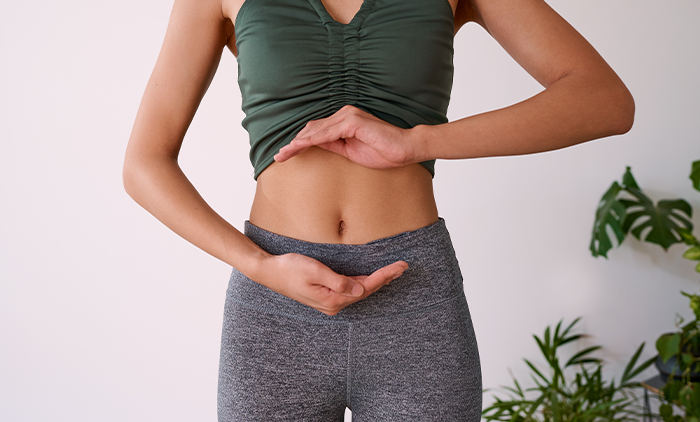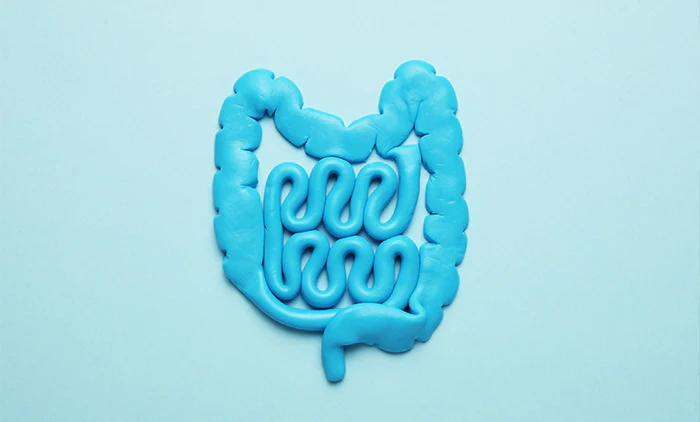Things you will learn in this blog |
Hormones - can’t live without them, but dang, they know how to make our lives difficult! So it makes sense to incorporate natural remedies, such as Seed Cycling, into our diet to try and keep our hormones on an even keel.
It can be hard to determine the impact our hormones are having on our day-to-day lives, but unbalanced hormones are proven to cause a whole host of problems, including fatigue, mood swings a disrupted menstrual cycle, digestion issues, infertility, weight changes, hair loss, excess hair growth and insomnia.
Many women are turning to Seed Cycling to help alleviate these hormone-related symptoms, but how do you do it?
And does it really work?
What is seed cycling?
Seed cycling involves eating different types of seeds and different points during your menstrual cycle with the aim of balancing your hormones, improving energy levels and combating irregular periods. Our menstrual cycle is split into two overarching phases - the follicular and luteal phases, lasting around 14 days each.
The follicular phase begins on day one of menstruation and lasts until ovulation. The luteal phase starts when you ovulate until the day before your next menstrual bleed.
It is important to note that not everyone’s cycle lasts twenty-eight days, so using an app such as Natural Cycles to track your specific cycle can be helpful. There are many apps that do this, but one like Natural Cycles, which uses body temperature, is usually more accurate.
Follicular phase - pumpkin seeds and flax seeds
During the follicular phase, the idea is to eat one tablespoon each of flax and pumpkin seeds. The follicular phase is characterized by increasing levels of estrogen production followed by a decline in estrogen as ovulation approaches. Flax and pumpkin seeds are said to help balance estrogen levels.
Luteal phase - sunflower seeds and sesame seeds
During the follicular phase, the idea is to eat one tablespoon each of sesame and sunflower seeds. During the luteal phase, it is the progesterone hormone that should be most prominent. Like with estrogen in the follicular phase, there is a rise and fall or progesterone, which peaks in the middle of the luteal phase, but the increase and the decline should be less dramatic. Sesame and sunflower seeds are said to balance progesterone levels.
What if you are menopausal?
If you are no longer having regular periods, you can use the moon's cycles to track your menstrual cycle. The first day of the new moon will be day one, so you can begin the pumpkin seed and flax seed cycle. Fourteen days later, you can begin the sunflower seed and sesame seed cycle.
Does seed cycling help with your menstrual cycle?
Yes… to an extent. Seeds are a great source of specific vitamins and minerals supporting hormonal balance. However, little evidence shows an added benefit in getting these vitamins and minerals from seeds over other foods.
There is very limited research into the effects of pumpkin seeds and sunflower seeds on hormone imbalance and the menstrual cycle. However, some studies have been done of sesame seeds and flax seeds.
Flax seeds have been shown to reduce menstrual cycle-related breast pain, and one study found that eating sesame seeds may increase the production of sex hormones in postmenopausal women. The study showed with more certainty that sesame seeds can improve blood lipids and antioxidant status, so eating sesame seeds will likely benefit.
But do they balance hormones in the way that seed cycling advocates claim?
That remains to be seen; most of the evidence is currently anecdotal. Does that mean you shouldn’t bother eating these seeds? Absolutely not! There are plenty of proven health benefits of incorporating them into your diet.
The benefits of eating seeds
There are many great reasons to try seed cycling.
Whole or ground flax seeds contain:
- Fiber improves heart health, aids digestion and weight loss
- Omega-3 fatty acids helps prevent heart disease, stroke and cancer
- Lignans which have anti-inflammatory and antioxidant properties
Whole or ground pumpkin seeds:
- Lower cholesterol
- Lower risk of getting breast cancer
- Help relieve bladder and prostate issues
Whole or ground sunflower seeds are a source of:
- Vitamin B supports good energy levels, brain health and our immune system
- Vitamin E helps keep our skin, hair and nails health
- Selenium supports thyroid function, our immune system and hair and nail health
Whole or ground sesame seeds are similar to flax seeds as they contain fiber and lignans. They are also thought to reduce inflammation for athletes and people suffering from arthritis.
Does seed cycling balance hormones?
While we don’t have a definite answer to this, increasing your consumption of seeds in a controlled manner is likely to have great health benefits, hormonal or otherwise.
Seeds are a great source of protein, meaning they are a good addition to a diet plan for anyone trying to reduce body fat. Just make sure to limit your consumption as they are similar to nuts in that they are moderately higher in calories than other protein sources. Seeds are a great energy-boosting snack that can help reduce cravings and help you feel full.
Seeds are really versatile and can be mixed into salads, porridge, and cereal and can be blended into shakes. Give seed cycling a try, or simply increase your daily intake of seeds, and see how you feel!
Find out more about how hormones can impact weight gain and what you can do to balance that here:




